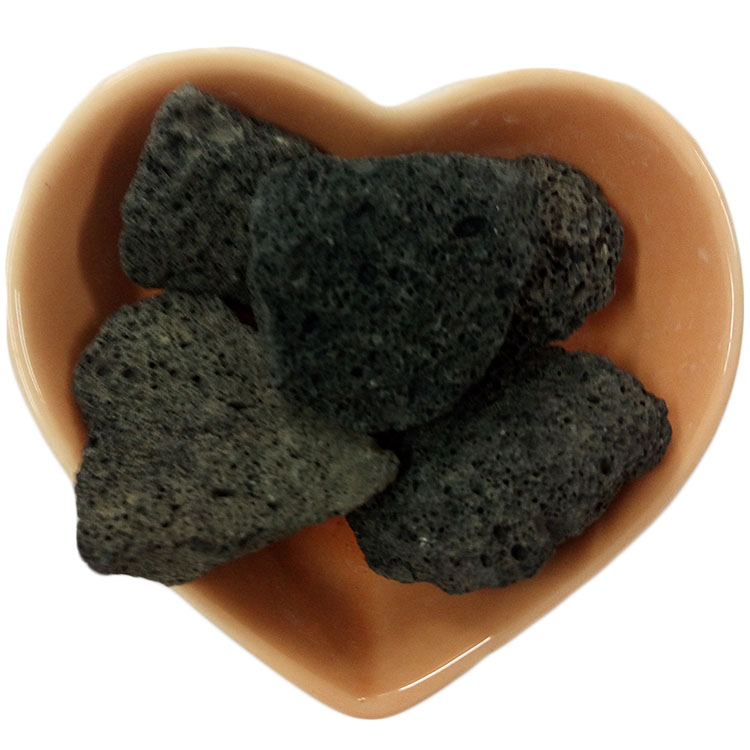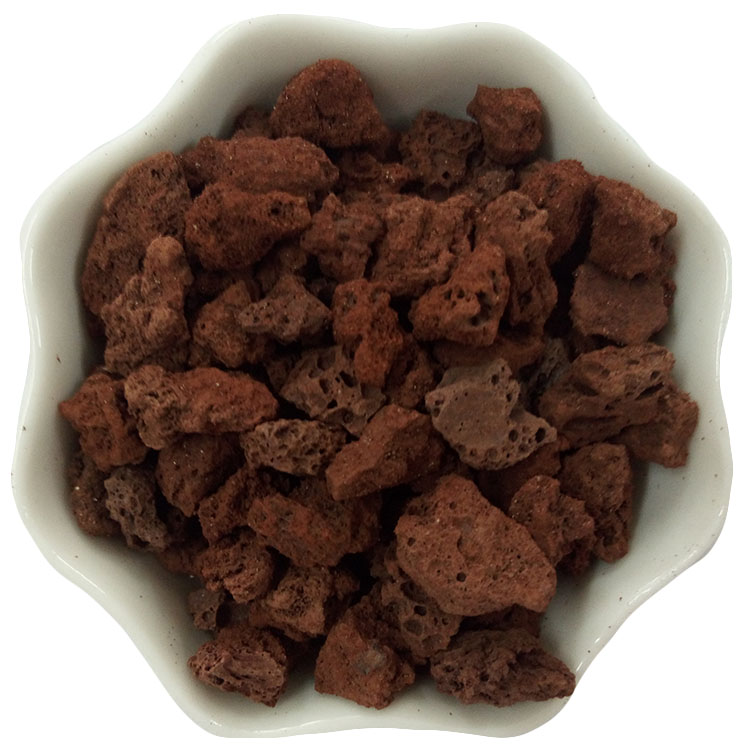Volcanic stone (commonly known as pumice or porous basalt) is a kind of functional environmental protection material. It is a very precious porous stone formed by volcanic glass, minerals and bubbles after the volcanic eruption. Volcanic stone contains dozens of minerals and trace elements such as sodium, magnesium, aluminum, silicon, calcium, titanium, manganese, iron, nickel, cobalt and molybdenum. It has a far-infrared magnetic wave without radiation. After the relentless volcanic eruption, thousands of years later, Humans are increasingly discovering its value. Now it has expanded its application field to architecture
Water conservancy, grinding, filter materials, barbecue charcoal, landscaping, soilless cultivation, ornamental products, and other fields.
Volcanic rocks are called pumice due to their abundant pores, light weight, and ability to float on the water surface. Its characteristics are high strength, thermal insulation, sound absorption, fire prevention, acid and alkali resistance, corrosion resistance, and no pollution or radioactivity.
Application of Hebei Volcanic Stone to Aquarium
1. Live water. Volcanic rocks can activate ions in water (mainly increasing the content of oxygen ions) and can be slightly released α Radiation and infrared radiation are beneficial for both fish and humans.
2. Stabilize water quality. This also includes two parts: the stability of pH value, which can be adjusted appropriately to automatically adjust water that is too acidic or too alkaline to close to neutral. The stability of mineral content, volcanic rocks have dual characteristics of releasing mineral elements and absorbing impurities in water. When there is too little or too much, its release and adsorption occur. The stability of pH value of water quality at the beginning of Arhat and during coloring is crucial.
3. Induce color. Volcanic rocks are bright and natural in color, which has a significant color attraction effect on many ornamental fishes, such as Arhat, Red Horse, Parrot, Red Dragon, Sanhu Cisnapper, etc. Especially, Arhat has the feature that its body is close to the color of surrounding objects, and the red of volcanic rocks will induce Arhat’s color to gradually redden.
4. Adsorption. Volcanic rocks have the characteristics of porosity and large surface area, which can adsorb harmful bacteria in water and heavy metal ions that affect organisms, such as chromium, arsenic, and even some residual chlorine in water. Placing volcanic stones in the aquarium can absorb the residue and feces that cannot be filtered by the filter to keep the water in the tank clean.
5. Play with props. Most fish, especially Arhat, are not mixed. They are also lonely. Arhat has the habit of playing with stones to build a home. Therefore, the lightweight volcanic stone has become a good prop for him to play
7. Optimize growth. Volcanic stone can also improve the protein synthesis in animals, strengthen the physique, and to a certain extent, increase the mobility of Arhat. This also played a great role in Arhat’s beginning.
8. Culture of nitrifying bacteria. The high surface area generated by the porosity of volcanic rocks is a good breeding ground for cultivating nitrifying bacteria in water, and their surface is positively charged, which is conducive to the fixed growth of microorganisms. They have strong hydrophilicity and can convert various causes of toxic NO2 and NH4 to relatively less toxic NO3- in water, which can greatly improve water quality.
9. The substrate material for the growth of aquatic plants. Due to its porous nature, it is beneficial for aquatic plants to climb and root and fix their diameter. The various mineral components dissolved from the stone itself are not only beneficial for the growth of fish, but also provide fertilizer for aquatic plants.

Post time: May-31-2023


